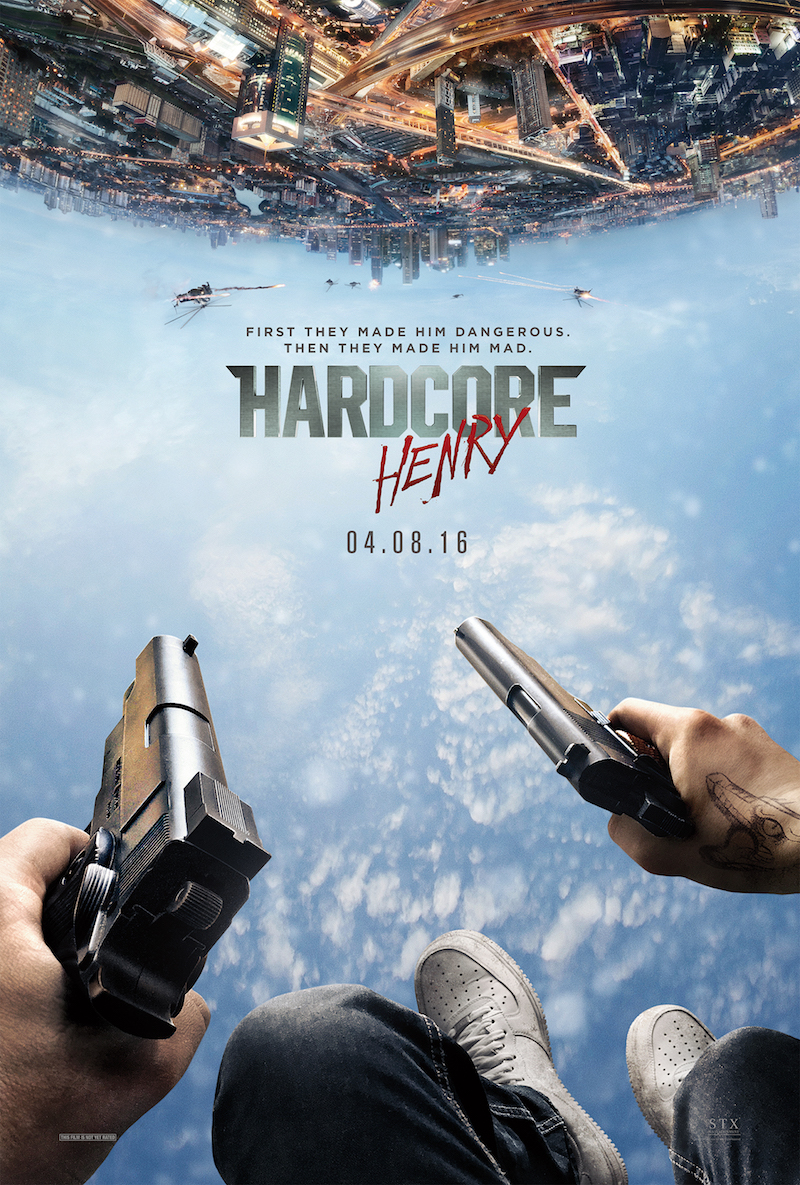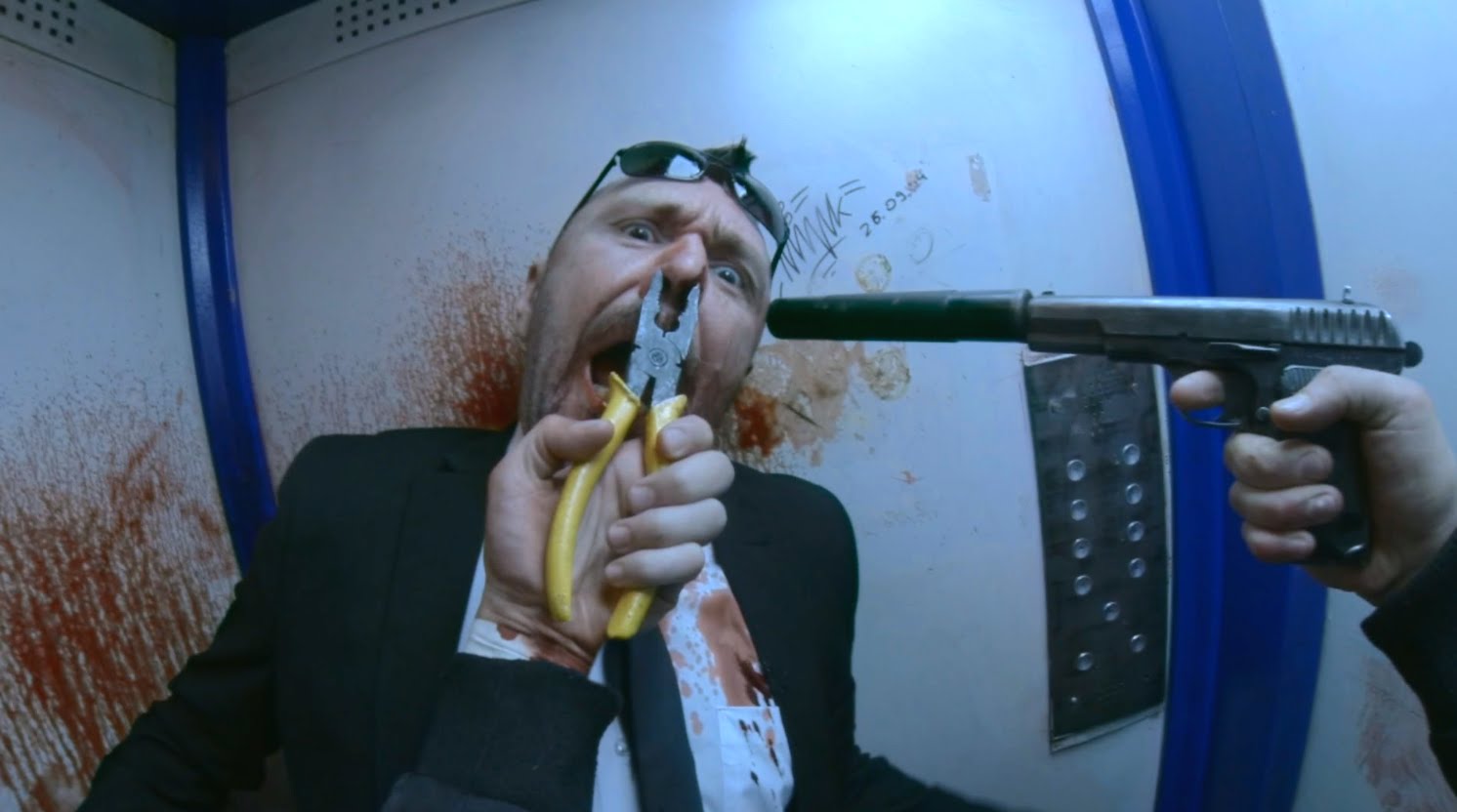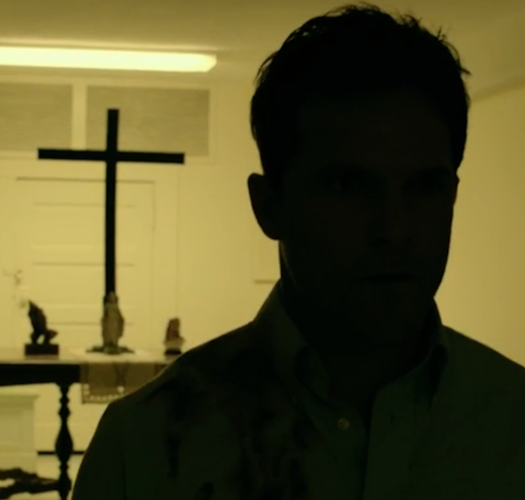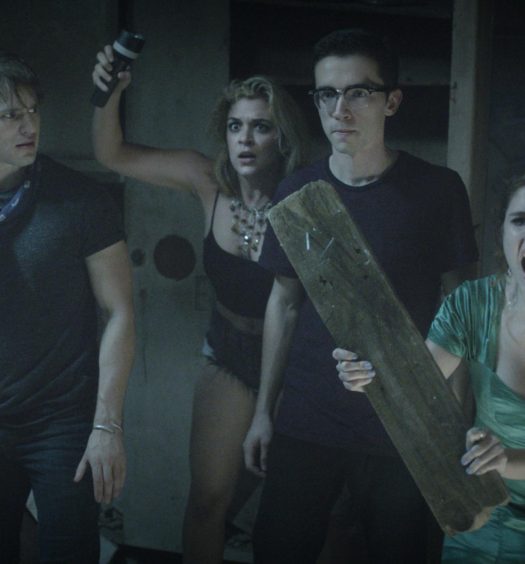Already a huge success in native Russia, Timur Bekmambetov made a name for himself stateside with 2008’s action blockbuster Wanted. His unique, innovative style already makes him a visionary, but he’s not content to just direct. Bekmambetov is also just as eager to find new talent on the rise with his production company, Bazelevs. His most recent U.S. production was the contemporary thriller, Unfriended, and next month audiences will get to see the insanity that is Hardcore Henry.
Bekmambetov sat down with Modern Horrors shortly after the SXSW Film Festival premiere to talk Hardcore Henry, Unfriended, and what’s on the horizon.
How did you develop your visual style? You have an eye for picking up unique films like Unfriended and Hardcore Henry? What are your influences?
Just, well it’s people. And filmmakers I’m working with. For Unfriended, I’m spending half of my life, minimum, on the computer screen. Half of my life in Moscow, and half here. And either I’m there on Skype, where I’m chatting with people in Los Angeles, or I’m in Los Angeles chatting with Moscow. This is why, for me, the most emotional part of my life is on the computer screen. With my friends, I’m fighting, I’m arguing, or enjoying time on screen. It’s why I believe that a screen share is the most relatable and a language for the audience. And I had a dream to make a movie one day when my computer screen will be on the big screen in IMAX. I believe that people will watch it and will be emotionally connected. The same thing happened with Hardcore Henry, because it’s almost the same time as when we began Unfriended. Maybe a few months’ difference. Because we play. We are a civilization of, not gamers, but we are playing. This movie represents how we think, how we feel, it’s our cultural differences, and our sense of humor. I think our biggest achievement is with this movie, it’s unbelievable action, unbelievable entertainment. But most important is that it’s human, and has a sense of humor.
It looks like the most technically difficult movie I’ve ever seen.
No. It’s a non-stop thrill ride that you don’t have time to notice. But after the fact I couldn’t help but think that it had to be really technically challenging to make the first POV style film. What was the most challenging aspect?
To figure out the language itself. To figure out how to tell the story, how to tell an emotional story when you don’t see the character. It’s clear that the choreography of the camera will tell you how he feels. The same way that in Unfriended, how we move the mouse, how we click and move windows tells you everything about the character. The same idea is in a POV movie, the way how you turn, when you turn, and how fast and sharp, tells you how your character feels. But, at the same time, we want to be sure that we see very specific events. Explosions, bullets flying, dialogue. You should think about this too. There’s balance between camera man and character. This is the most challenging, finding the balance.
You approached Ilya Naishuller over Facebook about making a full feature inspired by his short, Bad Motherf*cker, but he initially refused. Did it take a lot of convincing?
No. He was hesitant because he’s a very responsible person. He’s very smart and responsible. He will never agree if he doesn’t really believe. His first reaction was that he thought it would be gimmicky to be 90 minutes of the same thing. But I asked him if he wants himself to see this kind of thing on the big screen. And he said yes, I’ll be happy. Then we discussed how important the emotional part of the story was. And if he can find the story he can do it. He found it, and he made it.
Moscow is kind of its own character in the movie.
Was that intentional? Was there ever any other location in mind?
We live in Moscow, and we feel that the city has its own character. And it’s a really great contrast between grey and urban. It’s kind of relatable because you see it and it’s not so alien for Americans, for example. You see buildings and you see cars, but it’s still very different and it helps to be on the edge between reality and fantasy of the world we are creating. Because you don’t really feel, it’s not so alien or exotic. But it’s alien enough to feel that it’s halfway to the alternate reality.
Was it hard to sell investors on the concept of POV? A lot of the projects you select can be considered risky.
It is risky. It is risky, but if you know filmmaking you can understand what is real or not. It’s not rational, it’s your intuition as a filmmaker to see the future of the project. I’m enjoying working with younger filmmakers, because I can learn from them and help them. It’s very exciting for me.
Is this just the beginning? Do you think there could be a sequel or future POV shot films?
I think it’s bad luck to talk about sequels before the release. I think with the language we will have more movies made within the next few years. As for this specific movie, I don’t want to guess.
I expect we’ll see a few emulators pop up, trying to capture what you and Ilya Naishuller have accomplished. And now you’re working on a reboot of Ben-Hur?
It’s coming. It is very, very contemporary tonally, but it’s Ben-Hur of the 21st century. For me, it was really important and let the story play because I think it’s a great story.
Sounds great. Thank you so much for your time.

































